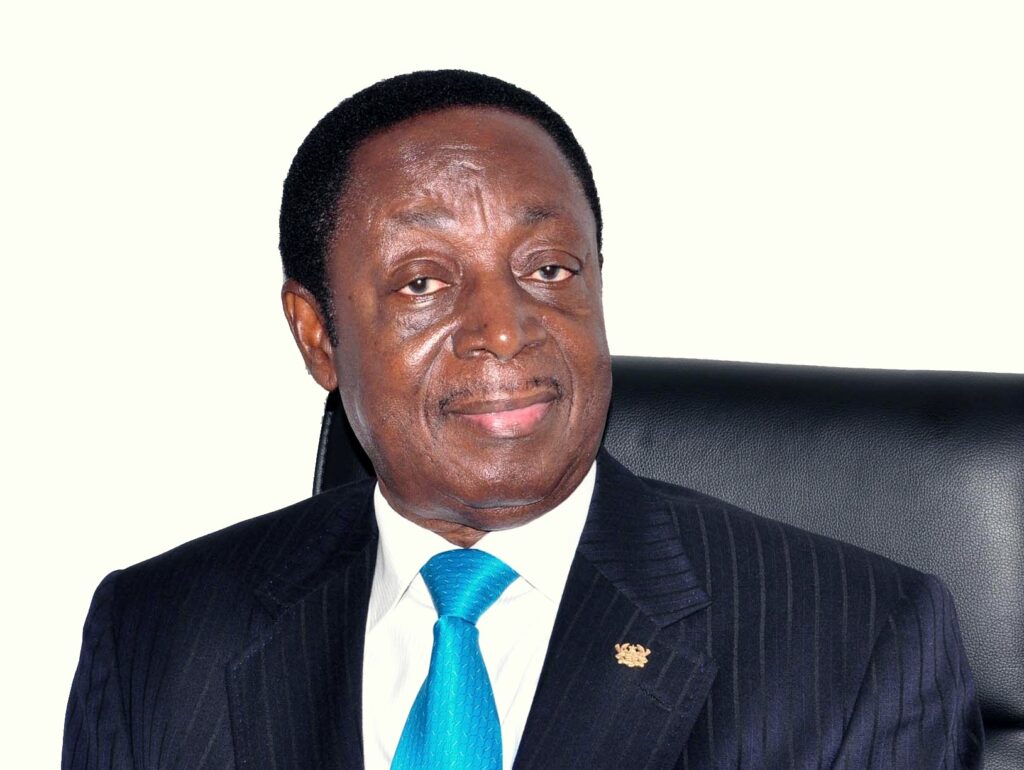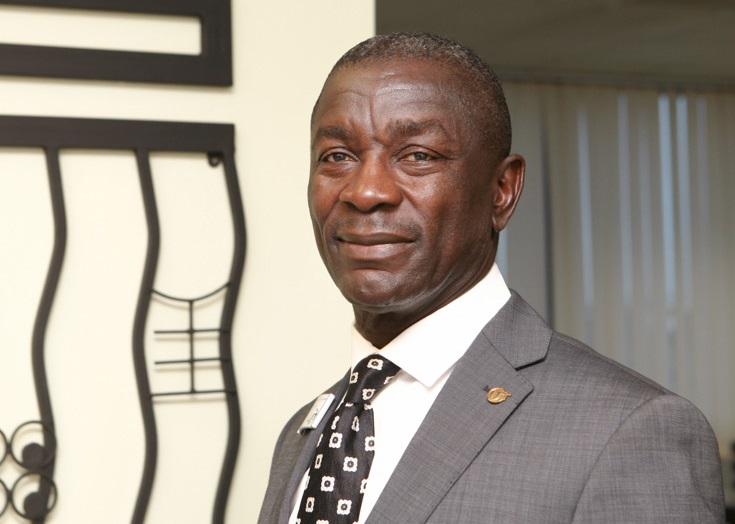BoG declines Parliament’s invitation to investigate collapse of UT, unibank
The Bank of Ghana (BoG) has declined an invitation to assist Parliament to investigate circumstances surrounding the collapse of uniBank and UT bank.
The central bank, through its lawyers, said the petitioners – Prince Kofi Amoabeng and Dr Kwabena Duffour – sought to review a decision that it had already taken.
The bank’s decision was taken according to its statutory powers under the Banks and Specialised Deposit-Taking Institutions Act, 2016 (Act 930).
“The BSDTI Act provides how persons who are aggrieved with such decisions may seek redress for their grievances, and the prescribed resolution mechanisms do not include recourse to Parliament,” it explained.
The central bank said the invitation by Parliament conflicts with its constitutionally mandated duty of promoting economic development and the efficient operation of a banking and credit system in the country.
This move, it said, is contrary to section 3 (2) and section 4 (1A) of the Bank of Ghana Act, 2002 (Act 613).
The central bank also said it would not participate in the said investigation being conducted by Parliament because “the probe flies in the face of the constitution”.
How it all started
A seven-member committee was set up by Parliament to probe circumstances that led to the collapse of UT and uniBank, companies affected by the financial sector clean-up in 2017.
The need for a further probe came after Dr Kwabena Duffuor and Prince Kofi Amoabeng petitioned the Speaker of Parliament Alban Bagbin on March 19.
What is Mr Duffuor seeking?

He is requesting that Parliament:
-Investigates the conduct of the Bank of Ghana in the takeover, the appointment of an Official Administrator of uniBank Ghana Limited, and the circumstances of the revocation of the banking licence of uniBank Ghana Limited;
-Directs the restoration of the banking licence of uniBank Ghana Limited by the Bank of Ghana and the remedying of the harms done to the shareholders’ property rights as a result of the conduct of the Bank of Ghana.
-Gives any other directives that Parliament may deem appropriate.
What is Mr Amoabeng seeking?

Mr Amoabeng is also seeking that the legislature:
-Investigates the conduct of the Bank of Ghana and the Ghana Stock Exchange for the revocation of UT Bank’s licence and delisting the bank without due regard to the rules of Administrative Justice guaranteed under article 23 of the 1992 Constitution.
-Directs the restoration of the banking licence of UT Bank Limited by the Bank of Ghana and the remedying of the harms done to the shareholders’ property rights as a result of the conduct of the Bank of Ghana.
-Gives any other directives that Parliament may deem appropriate.
READ ALSO: Who did what in the alleged blow-up of uniBank cash
Central Bank’s clean up
BoG announced reforms and a financial sector clean-up in 2017 following a decision to revise the minimum capital requirement from GHC120million to GHC400million.
Some nine local banks, 23 savings & loans companies, 347 microfinance institutions, and 39 finance houses had their licences revoked.
After the action of the BoG, the Securities and Exchange Commission (SEC) also stepped in to shut 53 fund management companies.
On August 14, 2017, the central bank began revocation of the licences. It approved that the good assets of Capital Bank and UT bank be taken over by GCB Bank while it appointed Vish Ashiagbor of PwC as receiver to make the most out of the remaining assets.
A year later, the apex bank revoked the licences of five other banks – Unibank, Construction Bank, The Royal Bank, Beige Bank, and Sovereign Bank – and announced that their good assets had been merged to form Consolidated Bank Ghana.
The affected banks included Heritage Bank Limited (HBL), Premium Bank and GN Bank.
However, the central bank’s decision is being contested by some of the shareholders of some banks that lost their license.
Notable among them are the shareholders of uniBank, which took on the BoG claiming their licence revocation was done arbitrarily without recourse to them.
Finance Minister-designate Ken Ofori-Atta has said the banking sector clean-up exercise cost the Ghanaian taxpayer total of GH¢21 billion, which he has described as a “financial enslavement legacy” from the erstwhile Mahama administration.
The Ministry of Finance proposed a tax of 5 per cent on gross profit from the banks to defray the debt.
It is subject to review after four years.
The latest on the UniBank court case
Dr Kwabena Duffuor, Dr Johnson Pandit Asiama and six others have been charged with 71 counts for uniBank and UT bank collapse.
The A-G accused Dr Duffuor, a shareholder of uniBank, of contributing to the bank’s collapse.
Dr Duffuor was said to have dishonestly received GH₵663.28 million from the bank.
It is also the case of the A-G that even though uniBank was in financial distress, Dr Asiama allegedly used his position as the Second Deputy Governor of the BoG to approve the transfer of GH¢300 million, which was an unsecured credit facility from uniBank to the Universal Merchant Bank (UMB).
Dr Asiama, on the other hand, has been charged with willfully causing financial loss to the state and contravention of the Bank of Ghana Act, 2002 (Act 612).
The other accused persons in the collapse of uniBank are Dr Kwabena Duffuor II, a son of Dr Duffuor, who was the Chief Executive Officer (CEO) of uniBank; Ekow Nyarko Dadzie-Dennis, the Chief Operating Officer of the bank; Elsie Dansoa Kyereh, the Executive Head of Corporate Banking; Jeffery Amon, a Senior Relationship Manager; Kwadwo Opoku Okoh, the Financial Control Manager, and Benjamin Ofori, the Executive Head of Credit Risk at the bank.
They have been charged with various counts of fraudulent breach of trust, money laundering and conspiracy to commit a crime.
All the accused persons have pleaded not guilty to the charges. The trial is set to continue on July 16, 2021.
The latest on UT bank court case
On May 28, 2020, an Accra High Court ordered the state to file, by June 22, all the documents they intend to rely on in the matter of Prince Kofi Amoabeng and five others, whose alleged roles led to the collapse of the Bank.
The five are:
Johnson Pandit Asiama (1st accused) was the 2nd Deputy Governor of the Bank of Ghana (BOG) between May 2016 and December 2017.
Raymond Amanfu (2nd accused) was the Head of Banking Supervision Department (BSD) at BOG from 2014 to October 2017.
UT Holdings Limited (UT Holdings – 3rd accused) holds shares in UT Bank Ghana Limited (UT).
Catherine Johnson (5th accused) was the Head of Treasury who had also acted as the Head of Corporate Banking of UT.
Robert Kwesi Armah (6th accused) was the General Manager of Corporate Banking of UT.
The new charges include fraudulent breach of trust, fabrication of evidence and deceit of public officer.
The accused face 42 charges — willfully causing financial loss, abetment of crime, Contravention of the Bank of Ghana Act, fraudulently causing financial loss to the Republic, Fraudulent Breach of Trust, Deceit of a public officer and fabrication of evidence.
They have, however, pleaded not guilty to the charges and have been granted bail with various terms of condition.




Ghana. It’s sad